Stories
February 25, 2026
How to implement Washington state’s 20-minute school lunch rule

Once served and seated, a student in grades K-5 must have at least 20 minutes to eat. This is the new requirement for Washington state elementary schools, based on The Time for Meals rule (WAC 392-157-125), which goes into effect in the 2029-30 school year. The rule requires that schools provide students in grades K-5…
February 20, 2026
Alumni experiences transitioning into professional practice and hiring managers’ perspectives

We recently connected with a group of our University of Washington Graduate Coordinated Program in Dietetics (GCPD) alumni about their experience after finishing the program. Our graduates consistently reported a smooth transition from graduation to professional practice. The time between graduating, taking the Commission on Dietetic Registration (CDR) exam to gain the RDN credential, and…
January 15, 2026
UW study abroad course explores food, equity, and public health in Morocco
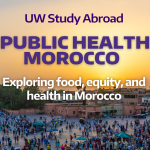
Public Health Morocco: Food, Equity, and Health – A Moroccan Exploration of the Social Determinants of Health is an early autumn 2026 study abroad program which follows inquiry-based and experiential methods to explore how societal differences—in terms of gender, socioeconomic status, religion, immigrant status, geographic region, urbanicity—affect food access, nutrition, and health in Morocco. The…
December 17, 2025
UW study abroad course explores sustainable food systems in Ireland and Italy

La Dolce Vita: Exploring Ireland and Italy in Search of the History and Future of Sustainable Food Systems is a 25-day study abroad program at University of Washington that will explore sustainable food systems across Ireland and Italy in autumn 2026. Important dates to learn more and apply Photos from past years Photos courtesy of…
November 14, 2025
Student leaders launch Food Systems Leadership Coalition at UW
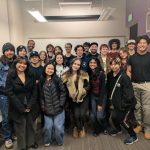
In early November 2025, more than 20 student leaders from across the University of Washington gathered for the first meeting of a new student-led initiative—the Food Systems Leadership Coalition (FSLC)—dedicated to advancing a campus where no one goes hungry. Food Systems, Nutrition, and Health Student Resource Coordinator Carmela Stewart initiated the idea by reaching out…
August 25, 2025
UW faculty member contributes to American Heart Association advisory on ultraprocessed foods
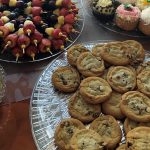
The American Heart Association (AHA) has issued a new science advisory examining what is currently known about the growing impact of ultraprocessed foods (UPFs) on nutrition and public health. Published August 8, 2025, in Circulation, the advisory highlights the evidence linking excessive consumption of UPFs with adverse health outcomes, offering a comprehensive review of the…
Celebrating students graduating from MPH, MS, and GCPD in 2025
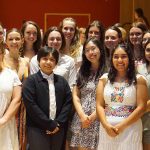
Congratulations to graduate students in the Food Systems, Nutrition, and Health (FSNH) program completing the Master of Public Health (MPH) and Master of Science (MS) in 2025. Many of these students also completed the Graduate Coordinated Program in Dietetics (GCPD) which will allow them to sit for the registered dietitian nutritionist (RDN) exam in the…
June 12, 2025
Graduate students receive 2025 leadership and service awards
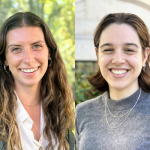
Congratulations to Hannah Sanders and Kate Shuhart, graduate students in the University of Washington School of Public Health Food Systems, Nutrition, and Health (FSNH) program who have been recognized by their peers with 2025 leadership and service awards. Each year, faculty and students in the FSNH graduate program nominate and select two exceptional senior student…
June 4, 2025
Food Systems students receive 2025 School of Public Health Excellence Awards
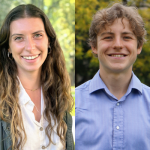
Congratulations to student and staff recipients in the University of Washington Food Systems, Nutrition, and Health (FSNH) program who were recognized with 2025 UW School of Public Health (SPH) Excellence Awards. Every year, the School celebrates individuals from each department and program for their exemplary work and academic achievements. Alex Ball 2025 Outstanding Undergraduate Student,…
May 20, 2025
Photovoice study captures UW student experience with food security
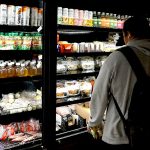
How does food insecurity show up in the daily life of a University of Washington (UW) student?
On May 28, an exhibit in the UW Husky Union Building (HUB) will share the findings of a unique photovoice project⸺a research method that combines photography with personal storytelling⸺which was led by student capstone teams from the Food Systems, Nutrition, and Health (FSNH) major in the UW School of Public Health.
Next page